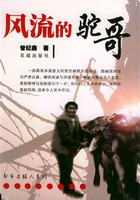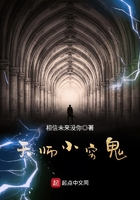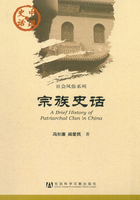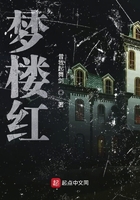All day, the colors had been those of dusk, mist moving like a water creature across the great flanks of mountains possessed of ocean shadows and depths. Briefly visible above the vapor, Kanchenjunga was a far peak whittled out of ice, gathering the last of the light, a plume of snow blown high by the storms at its summit.
Sai, sitting on the veranda, was reading an article about giant squid in an old National Geographic. Every now and then she looked up at Kanchenjunga, observed its wizard phosphorescence with a shiver. The judge sat at the far corner with his chessboard, playing against himself. Stuffed under his chair where she felt safe was Mutt the dog, snoring gently in her sleep. A single bald lightbulb dangled on a wire above. It was cold, but inside the house, it was still colder, the dark, the freeze, contained by stone walls several feet deep.
Here, at the back, inside the cavernous kitchen, was the cook, trying to light the damp wood. He fingered the kindling gingerly for fear of the community of scorpions living, loving, reproducing in the pile. Once he'd found a mother, plump with poison, fourteen babies on her back.
Eventually the fire caught and he placed his kettle on top, as battered, as encrusted as something dug up by an archeological team, and waited for it to boil. The walls were singed and sodden, garlic hung by muddy stems from the charred beams, thickets of soot clumped batlike upon the ceiling. The flame cast a mosaic of shiny orange across the cook's face, and his top half grew hot, but a mean gust tortured his arthritic knees.
Up through the chimney and out, the smoke mingled with the mist that was gathering speed, sweeping in thicker and thicker, obscuring things in parts—half a hill, then the other half. The trees turned into silhouettes, loomed forth, were submerged again. Gradually the vapor replaced everything with itself, solid objects with shadow, and nothing remained that did not seem molded from or inspired by it. Sai's breath flew from her nostrils in drifts, and the diagram of a giant squid constructed from scraps of information, scientists' dreams, sank entirely into the murk.
She shut the magazine and walked out into the garden. The forest was old and thick at the edge of the lawn; the bamboo thickets rose thirty feet into the gloom; the trees were moss-slung giants, bunioned and misshapen, tentacled with the roots of orchids. The caress of the mist through her hair seemed human, and when she held her fingers out, the vapor took them gently into its mouth. She thought of Gyan, the mathematics tutor, who should have arrived an hour ago with his algebra book.
But it was 4:30 already and she excused him with the thickening mist.
When she looked back, the house was gone; when she climbed the steps back to the veranda, the garden vanished. The judge had fallen asleep and gravity acting upon the slack muscles, pulling on the line of his mouth, dragging on his cheeks, showed Sai exactly what he would look like if he were dead.
"Where is the tea?" he woke and demanded of her. "He's late," said the judge, meaning the cook with the tea, not Gyan.
"I'll get it," she offered.
The gray had permeated inside, as well, settling on the silverware, nosing the corners, turning the mirror in the passageway to cloud. Sai, walking to the kitchen, caught a glimpse of herself being smothered and reached forward to imprint her lips upon the surface, a perfectly formed film star kiss. "Hello," she said, half to herself and half to someone else.
No human had ever seen an adult giant squid alive, and though they had eyes as big as apples to scope the dark of the ocean, theirs was a solitude so profound they might never encounter another of their tribe. The melancholy of this situation washed over Sai.
Could fulfillment ever be felt as deeply as loss? Romantically she decided that love must surely reside in the gap between desire and fulfillment, in the lack, not the contentment. Love was the ache, the anticipation, the retreat, everything around it but the emotion itself.
The water boiled and the cook lifted the kettle and emptied it into the teapot.
"Terrible," he said. "My bones ache so badly, my joints hurt—I may as well be dead. If not for Biju… ." Biju was his son in America. He worked at Don Pollo—or was it The Hot Tomato? Or Ali Baba's Fried Chicken? His father could not remember or understand or pronounce the names, and Biju changed jobs so often, like a fugitive on the run—no papers.
"Yes, it's so foggy," Sai said. "I don't think the tutor will come." She jigsawed the cups, saucers, teapot, milk, sugar, strainer, Marie and Delite biscuits all to fit upon the tray.
"I'll take it," she offered.
"Careful, careful," he said scoldingly, following with an enamel basin of milk for Mutt. Seeing Sai swim forth, spoons making a jittery music upon the warped sheet of tin, Mutt raised her head. "Tea-time?" said her eyes as her tail came alive.
"Why is there nothing to eat?" the judge asked, irritated, lifting his nose from a muddle of pawns in the center of the chessboard.
He looked, then, at the sugar in the pot: dirty, micalike glinting granules. The biscuits looked like cardboard and there were dark finger marks on the white of the saucers. Never ever was the tea served the way it should be, but he demanded at least a cake or scones, macaroons or cheese straws. Something sweet and something salty. This was a travesty and it undid the very concept of teatime.
"Only biscuits," said Sai to his expression. "The baker left for his daughter's wedding."
"I don't want biscuits."
Sai sighed.
"How dare he go for a wedding? Is that the way to run a business? The fool. Why can't the cook make something?"
"There's no more gas, no kerosene."
"Why the hell can't he make it over wood? All these old cooks can make cakes perfectly fine by building coals around a tin box. You think they used to have gas stoves, kerosene stoves, before? Just too lazy now."
The cook came hurrying out with the leftover chocolate pudding warmed on the fire in a frying pan, and the judge ate the lovely brown puddle and gradually his face took on an expression of grudging pudding contentment.
They sipped and ate, all of existence passed over by nonexistence, the gate leading nowhere, and they watched the tea spill copious ribbony curls of vapor, watched their breath join the mist slowly twisting and turning, twisting and turning.
Nobody noticed the boys creeping across the grass, not even Mutt, until they were practically up the steps. Not that it mattered, for there were no latches to keep them out and nobody within calling distance except Uncle Potty on the other side of the jhora ravine, who would be drunk on the floor by this hour, lying still but feeling himself pitch about—"Don't mind me, love," he always told Sai after a drinking bout, opening one eye like an owl, "I'll just lie down right here and take a little rest—"
They had come through the forest on foot, in leather jackets from the Kathmandu black market, khaki pants, bandanas—universal guerilla fashion. One of the boys carried a gun.
Later reports accused China, Pakistan, and Nepal, but in this part of the world, as in any other, there were enough weapons floating around for an impoverished movement with a ragtag army. They were looking for anything they could find—kukri sickles, axes, kitchen knives, spades, any kind of firearm.
They had come for the judge's hunting rifles.
Despite their mission and their clothes, they were unconvincing. The oldest of them looked under twenty, and at one yelp from Mutt, they screamed like a bunch of schoolgirls, retreated down the steps to cower behind the bushes blurred by mist. "Does she bite, Uncle? My God!"—shivering there in their camouflage.
Mutt began to do what she always did when she met strangers: she turned a furiously wagging bottom to the intruders and looked around from behind, smiling, conveying both shyness and hope.
Hating to see her degrade herself thus, the judge reached for her, whereupon she buried her nose in his arms.
The boys came back up the steps, embarrassed, and the judge became conscious of the fact that this embarrassment was dangerous for had the boys projected unwavering confidence, they might have been less inclined to flex their muscles.
The one with the rifle said something the judge could not understand.
"No Nepali?" he spat, his lips sneering to show what he thought of that, but he continued in Hindi. "Guns?"
"We have no guns here."
"Get them."
"You must be misinformed."
"Never mind with all this nakhra. Get them."
"I order you," said the judge, "to leave my property at once."
"Bring the weapons."
"I will call the police."
This was a ridiculous threat as there was no telephone.
They laughed a movie laugh, and then, also as if in a movie, the boy with the rifle pointed his gun at Mutt. "Go on, get them, or we will kill the dog first and you second, cook third, ladies last," he said, smiling at Sai.
"I'll get them," she said in terror and overturned the tea tray as she went.
The judge sat with Mutt in his lap. The guns dated from his days in the Indian Civil Service. A BSA five-shot barrel pump gun, a .30 Springfield rifle, and a double-barreled rifle, Holland & Holland. They weren't even locked away: they were mounted at the end of the hall above a dusty row of painted green and brown duck decoys.
"Chtch, all rusted. Why don't you take care of them?" But they were pleased and their bravado bloomed. "We will join you for tea."
"Tea?" asked Sai in numb terror.
"Tea and snacks. Is this how you treat guests? Sending us back out into the cold with nothing to warm us up." They looked at one another, at her, looked up, down, and winked.
She felt intensely, fearfully female.
Of course, all the boys were familiar with movie scenes where hero and heroine, befeathered in cosy winterwear, drank tea served in silver tea sets by polished servants. Then the mist would roll in, just as it did in reality, and they sang and danced, playing peekaboo in a nice resort hotel. This was classic cinema set in Kulu-Manali or, in preterrorist days, Kashmir, before gunmen came bounding out of the mist and a new kind of film had to be made.
The cook was hiding under the dining table and they dragged him out.
"Ai aaa, ai aaa" he joined his palms together, begging them, "please, I'm a poor man, please." He held up his arms and cringed as if from an expected blow.
"He hasn't done anything, leave him," said Sai, hating to see him humiliated, hating even more to see that the only path open to him was to humiliate himself further.
"Please living only to see my son please don't kill me please I'm a poor man spare me"
His lines had been honed over centuries, passed down through generations, for poor people needed certain lines; the script was always the same, and they had no option but to beg for mercy. The cook knew instinctively how to cry.
These familiar lines allowed the boys to ease still further into their role, which he had handed to them like a gift.
"Who wants to kill you?" they said to the cook. "We're just hungry, that's all. Here, your sahib will help you. Go on," they said to the judge, "you know how it should be done properly." The judge didn't move, so the man pointed the gun at Mutt again.
The judge grabbed her and put her behind him.
"Too soft-hearted, sahib. You should show this kind side to your guests, also. Go on, prepare the table."
The judge found himself in the kitchen where he had never been, not once, Mutt wobbling about his toes, Sai and the cook too scared to look, averting their gaze.
It came to them that they might all die with the judge in the kitchen; the world was upside down and absolutely anything could happen.
"Nothing to eat?"
"Only biscuits," said Sai for the second time that day.
"La! What kind of sahib?" the leader asked the judge. "No snacks! Make something, then. Think we can continue on empty stomachs?"
Wailing and pleading for his life, the cook fried pakoras, batter hitting the hot oil, this sound of violence seeming an appropriate accompaniment to the situation.
The judge fumbled for a tablecloth in a drawer stuffed with yellowed curtains, sheets, and rags. Sai, her hands shaking, stewed tea in a pan and strained it, although she had no idea how to properly make tea this way, the Indian way. She only knew the English way.
The boys carried out a survey of the house with some interest. The atmosphere, they noted, was of intense solitude. A few bits of rickety furniture overlaid with a termite cuneiform stood isolated in the shadows along with some cheap metal-tube folding chairs. Their noses wrinkled from the gamy mouse stench of a small place, although the ceiling had the reach of a public monument and the rooms were spacious in the old manner of wealth, windows placed for snow views. They peered at a certificate issued by Cambridge University that had almost vanished into an overlay of brown stains blooming upon walls that had swelled with moisture and billowed forth like sails. The door had been closed forever on a storeroom where the floor had caved in. The storeroom supplies and what seemed like an unreasonable number of emptied tuna-fish cans, had been piled on a broken Ping-Pong table in the kitchen, and only a corner of the kitchen was being used, since it was meant originally for the slaving minions, not the one leftover servant.
"House needs a lot of repairs," the boys advised.
"Tea is too weak," they said in the manner of mothers-in-law. "And not enough salt," they said of the pakoras. They dipped the Marie and Delite biscuits in the tea, drew up the hot liquid noisily. Two trunks they found in the bedrooms they filled with rice, lentils, sugar, tea, oil, matches, Lux soap, and Pond's Cold Cream. One of them assured Sai: "Only items necessary for the movement." A shout from another alerted the rest to a locked cabinet. "Give us the key."
The judge fetched the key hidden behind the National Geographics that, as a young man, visualizing a different kind of life, he had taken to a shop to have bound in leather with the years in gold lettering.
They opened the cabinet and found bottles of Grand Marnier, amontillado sherry, and Talisker. Some of the bottles' contents had evaporated completely and some had turned to vinegar, but the boys put them in the trunk anyway.
"Cigarettes?"
There were none. This angered them, and although there was no water in the tanks, they defecated in the toilets and left them stinking. Then they were ready to go.
"Say, 'Jai Gorkha,'" they said to the judge. "Gorkhaland for Gorkhas."
"Jai Gorkha."
"Say, 'I am a fool.'"
"I am a fool."
"Loudly. Can't hear you, huzoor. Say it louder."
He said it in the same empty voice.
"Jai Gorkha," said the cook, and "Gorkhaland for Gorkhas," said Sai, although they had not been asked to say anything.
"I am a fool," said the cook.
Chuckling, the boys stepped off the veranda and out into the fog carrying the two trunks. One was painted with white letters on the black tin that read: "Mr. J. P. Patel, SS Strathnaver" The other read: "Miss S. Mistry, St. Augustine's Convent." Then they were gone as abruptly as they had appeared.
"They've gone, they've gone," said Sai. Mutt tried to respond despite the fear that still inhabited her eyes, and she tried to wag her tail, although it kept folding back between her legs. The cook broke into a loud lament: "Humara kya hoga, hai hai, humara kya hoga," he let his voice fly. "Hai, hai, what will become of us?"
"Shut up," said the judge and thought, These damn servants born and brought up to scream.
He himself sat bolt upright, his expression clenched to prevent its distortion, tightly clasping the arms of the chair to restrict a violent trembling, and although he knew he was trying to stop a motion that was inside him, it felt as if it were the world shaking with a ravaging force he was trying to hold himself against. On the dining table was the tablecloth he had spread out, white with a design of grape-vines interrupted by a garnet stain where, many years ago, he had spilled a glass of port while trying to throw it at his wife for chewing in a way that disgusted him.
"So slow," the boys had taunted him. "You people! No shame… . Can't do one thing on your own."
Both Sai and the cook had averted their gaze from the judge and his humiliation, and even now their glances avoided the tablecloth and took the longer way across the room, for if the cloth were acknowledged, there was no telling how he might punish them. It was an awful thing, the downing of a proud man. He might kill the witness.
The cook drew the curtains; their vulnerability seemed highlighted by the glass and they appeared to be hanging exposed in the forest and the night, with the forest and the night hanging their dark shaggy cloaks upon them. Mutt saw her reflection before the cloth was drawn, mistook it for a jackal, and jumped. Then she turned, saw her shadow on the wall, and jumped once more.
It was February of 1986. Sai was seventeen, and her romance with Gyan the mathematics tutor was not even a year old.
When the newspapers next got through the road blocks, they read:
In Bombay a band named Hell No was going to perform at the Hyatt International.
In Delhi, a technology fair on cow dung gas stoves was being attended by delegates from all over the world.
In Kalimpong, high in the northeastern Himalayas where they lived—the retired judge and his cook, Sai, and Mutt—there was a report of new dissatisfaction in the hills, gathering insurgency, men and guns. It was the Indian-Nepalese this time, fed up with being treated like the minority in a place where they were the majority. They wanted their own country, or at least their own state, in which to manage their own affairs. Here, where India blurred into Bhutan and Sikkim, and the army did pull-ups and push-ups, maintaining their tanks with khaki paint in case the Chinese grew hungry for more territory than Tibet, it had always been a messy map. The papers sounded resigned. A great amount of warring, betraying, bartering had occurred; between Nepal, England, Tibet, India, Sikkim, Bhutan; Darjeeling stolen from here, Kalimpong plucked from there—despite, ah, despite the mist charging down like a dragon, dissolving, undoing, making ridiculous the drawing of borders.















